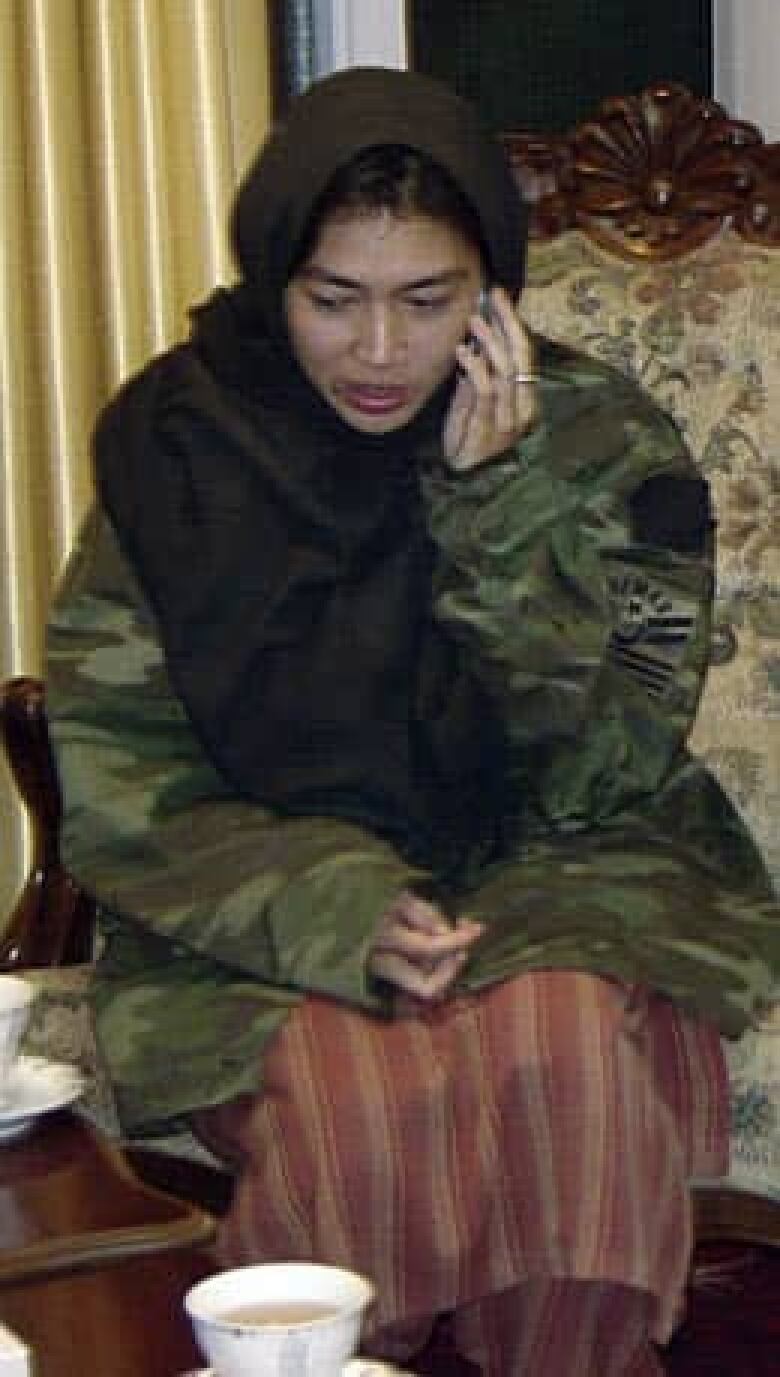No 'political prisoners' released or traded for Fung: Harper
Varying accounts of Fung's release abound

"There has been no release or exchange of political prisoners," Harper told a news conference in Ottawa on Monday.
"This matter is being handled according to the laws of the government of Canada and the government of Afghanistan, and that's all I'll say in that regard."
Harper also repeated earlier assertions that "continued reports" of a ransom payment to her captors were untrue.
Chief of defence staff Gen. Walter Natynczyk, speaking to the Empire Club in Toronto on Monday, was similarly cryptic.
"This is a testament to the good co-operation between the Afghan government authorities and the government of Canada, who have worked together as a team in this regard," said Natynczyk.
He went on to say her release was "a very positive outcome, but I can't say much more about that."
Harper and Natynczyk's comments come after a Pakistani news agency reported that Fung was released in exchange for two prisoners connected to the gang responsible for kidnapping her in Afghanistan.
No deal in Fung case: Canadian ambassador
Earlier Monday, the Canadian government denied a separate report that two senior Taliban leaders facing charges of terrorism were freed to ensure Fung's safety.
Canadian ambassador to Afghanistan Ron Hoffmann said Monday that the Canadian government did not cut a deal involving any transfer of Taliban prisoners.
The Canadian Press quoted Hoffmann as saying it was possible that the kidnappers made such a demand, however, since it wouldn't have been out of line for a high-profile Western hostage.
According to the Afghan Islamic Press — a news agency on the Pakistan/Afghanistan border — the criminal gang holding Fung had wanted the release of at least five people affiliated with it. They were being held at a prison in Wardak province, about 50 kilometres southwest of Kabul, where Fung was confined by her captors.
"Apparently the gang got two prisoners, but not the five it was looking for," said CBC reporter Bill Gillespie, who spoke with the news agency.
"Western journalists look to this agency because they have very good sources within the Afghan militias, the Taliban, and often the things they say are correct," Gillespie added.
"The agency also says the Taliban were not involved. This was strictly a criminal gang."
However, the Pakistan Observer reported that the prisoners released in exchange for Fung were members of the Taliban resistance.
CBC News publisher John Cruickshank has said the broadcaster will not comment on any negotiations or demands that may have led to Fung's release.
But Prime Minister Stephen Harper, Cruickshank and Afghan intelligence agents have all said that no monetary ransom was paid for Fung's release. Harper also said all Canadian and Afghanistan laws were followed to secure her release.
Fung was freed over the weekend during a raid by Afghan intelligence officers, the same day a call was received threatening to kill the kidnapped CBC journalist.
Underground chamber
Fung was captured and kept in an underground chamber southwest of Kabul for 28 days.
Weeks into her capture, the search for Fung had closed in on a house in a village on Wardak province. Gillespie said the area is a hotbed of lawlessness populated by groups including the Taliban, a group like the Taliban, warlords and criminal gangs.
On Saturday morning, a Kandahar journalist known to CBC got a threatening call, which he recorded.
The caller said: "We have the girl. Tell them we want the money today or we'll kill her."
The caller then alluded to people in custody of Afghan authorities, saying, "If they hurt them, we will kill her."
That message was quickly relayed to officials in Kabul. It is unclear what happened in the next hours, but by that evening, Fung had been freed by Afghan intelligence officers.
"Around 8:30 p.m. local, we successfully raided a house … and rescued Ms. Fung … in very good health condition," said an Afghan official at a press conference.
Gillespie said Afghan authorities discouraged any Canadian plans to send in special forces to try to release Fung, saying they were making progress.
Sense of shame
Gillespie said that the governor of the province credited the elders of Wardak province for being instrumental in securing her release because they felt a deep sense of shame that the kidnappers had chosen a woman as their victim.
"They said that this was against Islam, it was a shame on the country and it was a shame on them," Gillespie said.
Fung, 35, had been taken by armed men who approached her in a refugee camp on the outskirts of Kabul on Oct. 12.
Afghan officials said they have arrested three people, described as secondary suspects. One of the key men involved may have fled Afghanistan.
Fung, who was raised in Vancouver, but recently stationed in Regina, said her captors stayed with her for the first three weeks but in the last week, she was left on her own with her hands and feet chained.
She said her captors never hurt her but that she was kept blindfolded.
With files from the Canadian Press